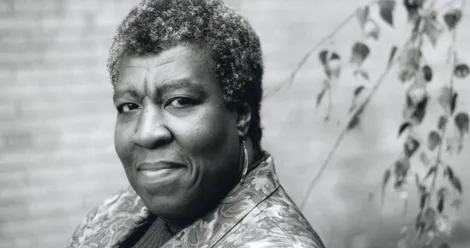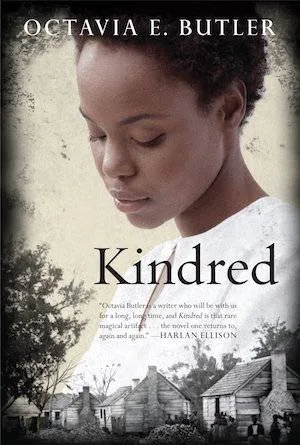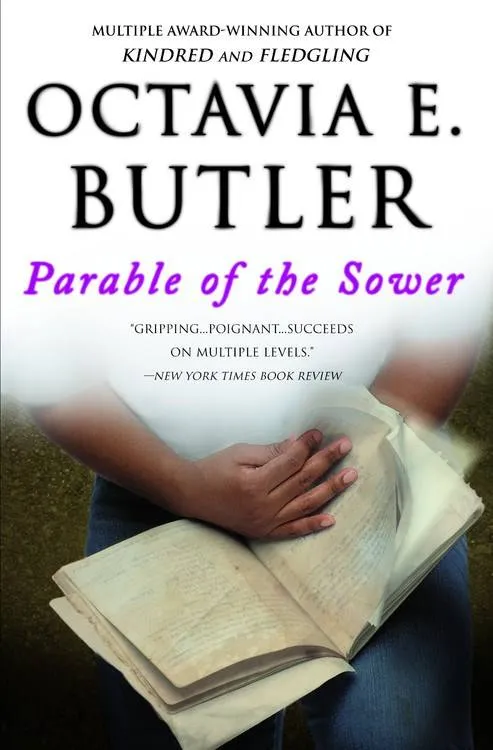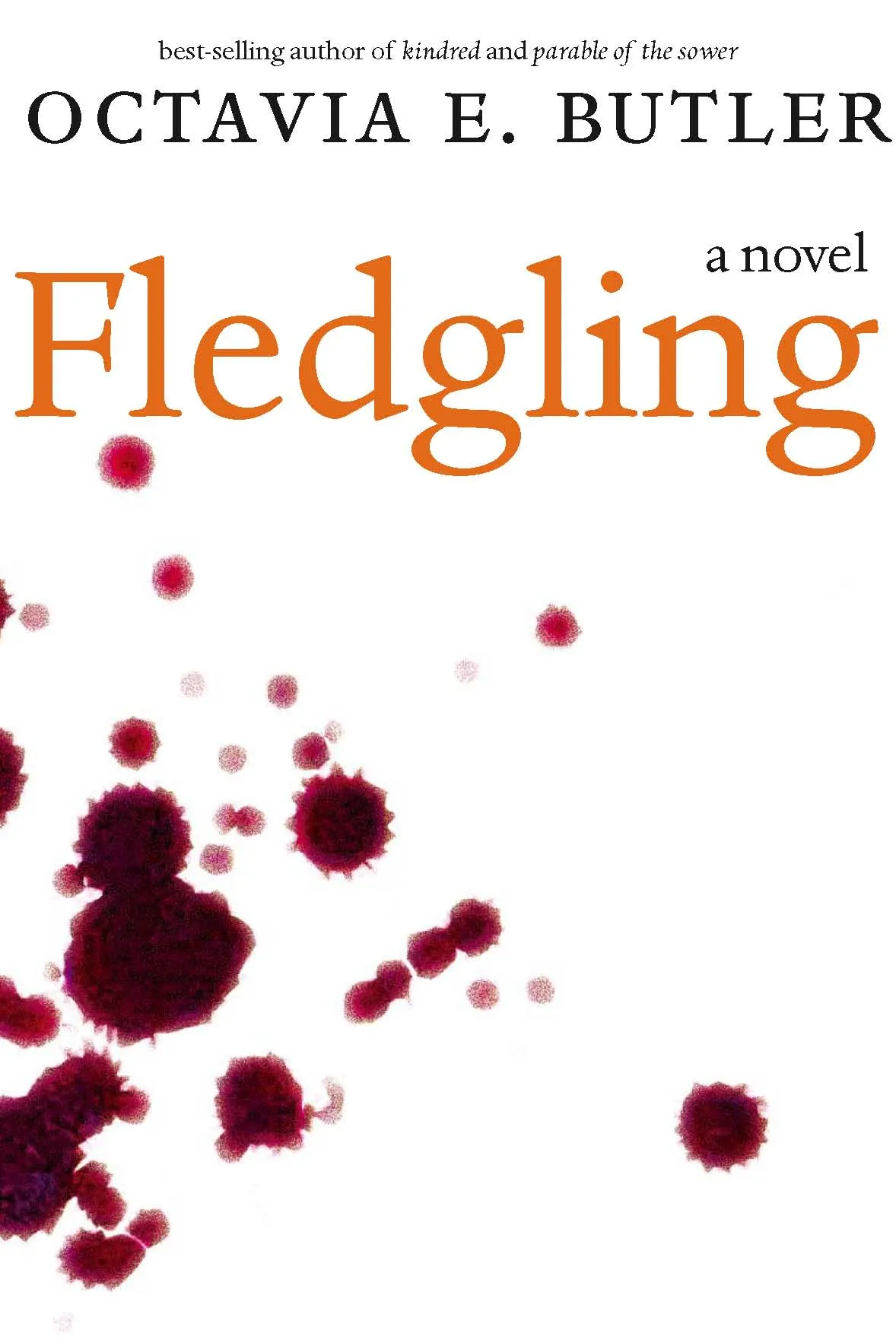
An Octavia Butler Reading Pathway
Today at Book Riot, we’re celebrating Octavia Butler day. If you’re not already a Butler fan, we hope that our posts have piqued your interest! If you’re interested in reading Octavia Butler’s work but don’t know where to start, this post is for you! These books will give you a great introduction to Butler’s writing.
 Start with … Kindred.
Start with … Kindred.
This is where I started with Butler, and of all her books that I’ve read, I think it has the widest appeal. Published in 1979, Kindred is the story of Dana, a modern-day black woman who is suddenly finds herself whisked back in time to a pre-Civil War plantation. There she meets her ancestors, both black and white. Now, she has to figure out how to survive in the past and in the present. The book tackles the complexity of the relationship between enslaved people and those who claimed ownership of them. And it’s a good story. Because the science fiction element is confined to the mysterious time travel that makes the story go, it’s a book that even those who don’t enjoy science fiction can enjoy. (It’s similar to Colson Whitehead’s The Underground Railroad in that respect.)
 Then Move on to … Parable of the Sower
Then Move on to … Parable of the Sower
The first of Butler’s two Parable novels, Parable of the Sower is the story of Lauren Oya Olamina who lives in Los Angeles in the 2020s. Climate change has made basic resources scarce, and most people live at the mercy of the few corporations who have jobs and money to offer. Lauren starts the book in relative safety in a gated community, but her world gradually falls apart. Born with a special gift (and sometimes curse) of empathy, she clings to an idea called Earthseed, which develops into a religion based on the idea of God as change. It’s a remarkable book about hope and survival and the power of vulnerability. And it’s the lead-in to an even better book.
 Lauren’s story continues in Parable of the Talents
Lauren’s story continues in Parable of the Talents
When people talk about prescient fiction, this is the book that springs to my mind. Published in 1998, it’s alarming how close we are to the trajectory Butler lays out here. Lauren has created a new community called Acorn built on the Earthseed ideals. For a time, everything seems idyllic within Acorn, even as the world outside continues falling apart. But then the Christian America party’s presidential candidate gets elected under the slogan “Make America Great Again.” Their first order of business is to round up and reeducate anyone who is different. That includes the people of Acorn. The chilling thing is how they’re able to keep the persecution and torture just far enough out of sight to keep the masses ignorant of what’s going on.
But as terrifying as it is, there’s some hope. This is a book where institutions can be manipulated, but they can also, ultimately, work for the people’s benefit. It’s a long and horrifying journey, though. One I’d prefer to stop in its tracks as early as possible.
 And finally, there’s Fledgling
And finally, there’s Fledgling
Butler’s final novel is a fascinating take on vampires. The main character, Shori, is an Ina, a species with sensitivity to sun, a youthful appearance (Shori looks to be about 10 but is actually in her 50s), and reliance on human blood for sustenance. When the book begins, Shori has no understanding of who or what she is, and we are educated in Ina ways structures along with her. The book examines racial, sexual, familial, and societal structures, putting all of them up for harsh examination. There’s a lot in this book that might make readers uncomfortable, particularly given Shori’s appearance as pre-teen girl. I, however, appreciate that Butler was willing to dig into the discomfort. And, like her other books, it’s a great story, even without the complex ideas behind it.
Science Fiction Short Story Collections by Authors of Color
Many genre authors from marginalized backgrounds get their start in short fiction. Check out these amazing short story collections by authors of color.
Fear and Butler in America
A reader on the fear of approaching Octavia Butler's work and being wrung apart by her words.
Fierce: The Short Fiction of Octavia Butler
On one reader's Octavia Butler reading experience with synopses of two particularly poignant short stories.




